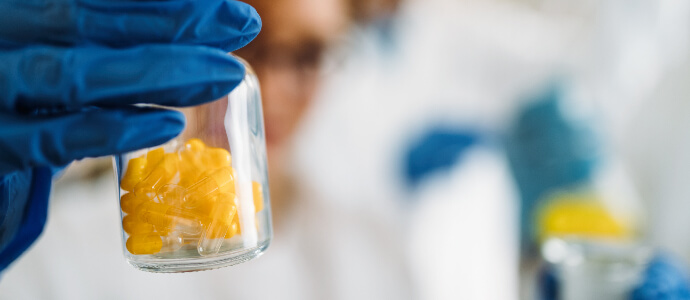Capuano IP represents clients on both the branded and generic sides in Hatch-Waxman Act litigation in Federal courts and the PTO.
Our intellectual property lawyers have a proven history of helping clients achieve positive outcomes in complex Hatch-Waxman patent actions.
Representing Clients in Hatch-Waxman Litigation Nationwide
The Hatch-Waxman Act, formally known as the Drug Price Competition and Patent Term Restoration Act of 1984, expedited approvals of products made by generic drug companies. Key components of the law include:
- Establishing a patent litigation procedure, allowing a generic manufacturer to challenge a brand manufacturer’s patents without risk of exposure to liability for patent infringement
- Creating a statutory “safe harbor” to protect generic applicants from patent infringement claims for development work before an existing patent expires, until a request for approval is filed with the Food and Administration (FDA)
- Requiring brand-name firms to identify to the FDA patents covering their products for listing in the “Orange Book”
- Incentivizing generic manufacturers to challenge brand name patents by providing a 180-day market exclusivity period for the first marketed generic
- Providing brand manufacturers with a 5-year exclusivity period during which generic manufacturers cannot submit FDA applications for generic versions of the pharmaceutical
In sum, the Hatch-Waxman Act is designed to balance innovation and affordability by (1) providing incentives to pharmaceutical companies to research and develop innovative drugs and (2) creating an abbreviated path for generic drug manufacturers to bring cheaper, generic versions of pharmaceuticals to market.
Applications for Market Approval of Pharmaceuticals
The Hatch-Waxman Act ushered in an Abbreviated New Drug Application (ANDA) that allows a generic manufacturer to file for FDA approval if the active ingredient in a generic drug is bioequivalent to the approved pharmaceutical. An ANDA also allows a generic manufacturer to rely on the original manufacturer’s safety and efficacy data rather than funding their own clinical studies.
Hatch-Waxman also established a Section 505(b)(2) application that allows the applicant to rely in part on safety and efficacy data that is available in published literature. ANDA and Section 505(b)(2) applications essentially allow generic manufacturers to bring FDA-approved bioequivalent drugs to market once relevant patents expire.
All approved pharmaceuticals, both brand name and generic, are listed in the FDA’s Approved Drug Products with Therapeutic Equivalence Evaluations – the Orange Book. Generic manufacturers are required to engage in a specialized certification procedure regarding Orange Book-listed patents. This includes a Paragraph IV certification in which the ANDA applicant claims the patent is invalid or will not be infringed by the manufacture, sale, or use of the generic drug.
Patent Infringement Proceedings
The Hatch-Waxman Act requires an ANDA applicant to notify the owner of a patent that is the subject of a Paragraph IV certification. The patent owner may then pursue patent infringement litigation against the generic manufacturer in federal court.
If the patent owner takes legal action within 45 days of receiving notice from the ANDA applicant, the FDA will suspend approval of the ANDA. In short, if the patent holder’s infringement claim is successful, the generic manufacturer may be prevented from marketing the generic version of the drug until the date the patent expires.
While this sounds straightforward, Hatch-Waxman Act litigation is complicated and governed by unique local procedural rules and FDA exclusivity regulations. Whether you need assistance pursuing or defending a pharmaceutical patent infringement claim, it is crucial to work with an experienced Hatch-Waxman Act attorney.
The Capuano IP Difference
Our lawyers have been analyzing and litigating Orange Book patents since 1998. Our knowledge of pharmaceutical sciences encompasses compositions, active pharmaceutical ingredients (APIs), formulations, methods of use, and various other pharmaceutical technologies. Our comprehensive services include:
- Analyzing Orange Book-listed and non-listed patents
- Drafting Paragraph IV Notice Letters and Detailed Statements
- Providing (non)infringement, (in)validity nd (un)enforceability opinions
- Litigating Hatch-Waxman cases as Lead Counsel or Co-Counsel
Contact Our Experienced Hatch-Waxman Act Attorneys Today
Located just north of Boston in Salem, Massachusetts, Capuano IP advises clients in the pharmaceutical sciences nationally and internationally. Whether you need assistance bringing generic drugs to market or enforcing a pharmaceutical patent, we can help. Contact us today for a consultation.
Located north of Boston in Salem, Massachusetts, Capuano IP advises clients regarding compliance with the Hatch-Waxman Act in the greater Boston and Cambridge area.
